The GGLABS T232 is very popular for debugging legacy RS-232 connections. In this article we will describe a few debugging tips and show how to emulate some of the common cable configurations.
T232 Pin assignments
| Dip Switch | DE-9 Pin | Name | Description |
|---|---|---|---|
| 1 | 2 | RxD | Receive Data |
| 2 | 3 | TxD | Transmit Data |
| 3 | 8 | CTS | Clear to Send |
| 4 | 7 | RTS | Request to Send |
| 5 | 6 | DSR | Data Set Ready |
| 6 | 4 | DTR | Data Terminal Ready |
| 7 | 1 | DCD | Data Carrier Detect |
| 8 | 9 | RI | Ring Indicator |
| - | 5 | GND | Ground |
9-wire Straight (Default Configuration)
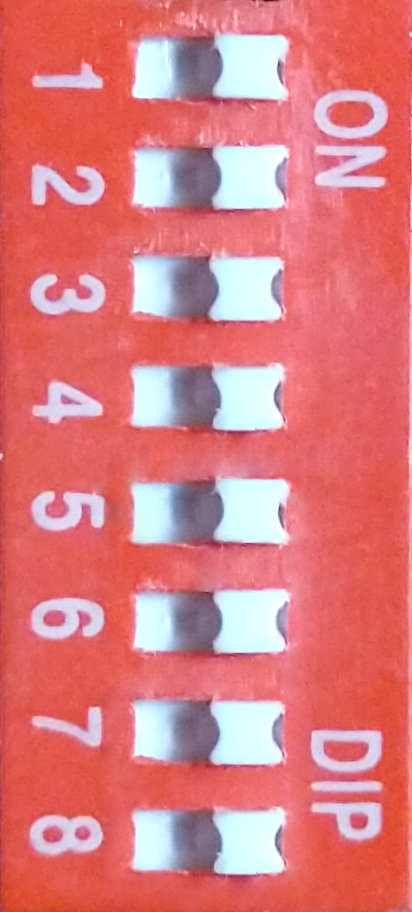
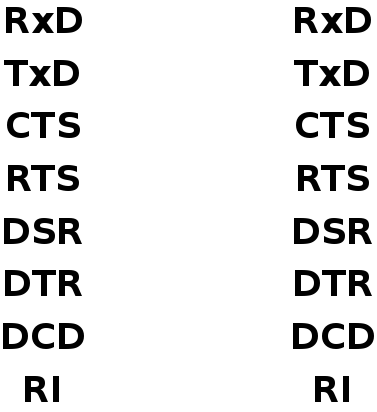
All dip switch on. No additional jumpers.
This is a 9-wire standard straight through cable. It's used to connect a host computer (DTE) to a modem or other device configured as a DCE.
3 wire straight configuration
Dip 1 and 2 on. No additional jumpers.
This configuration emulates a 3 wire (no hardware flow control) straight cable.
5 wire straight configuration
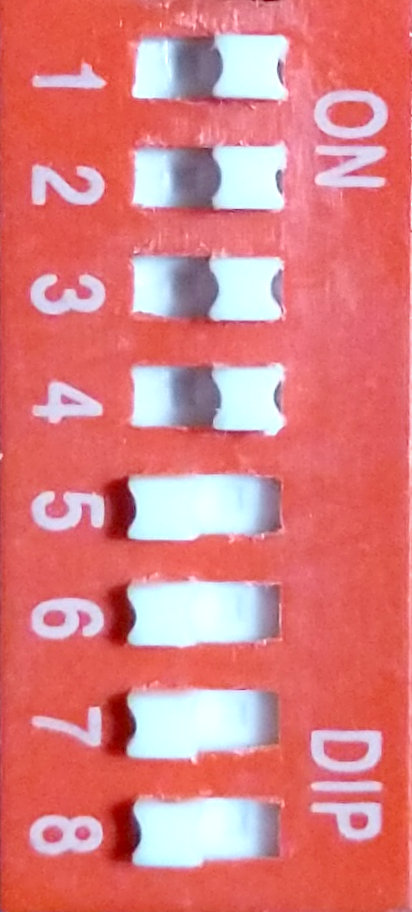

Dip 1-4 on. No additional jumpers.
This configuration emulates a 5 wire (CTS/RTS flow control) straight cable.
3 wire straight with handshake shorts
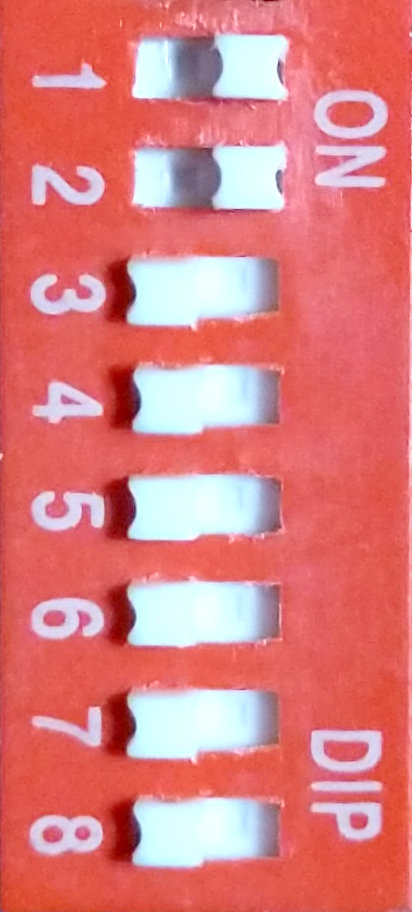
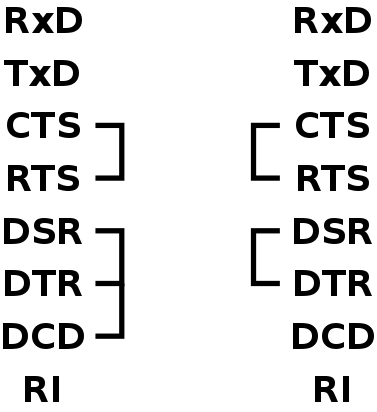
Dip 1 and 2, jumpers as shown.
This configuration is useful when connecting a device (DCE) with no handshake with a computer (DTE) that can't turn off flow control.
Minimal (3 wire) Null Modem
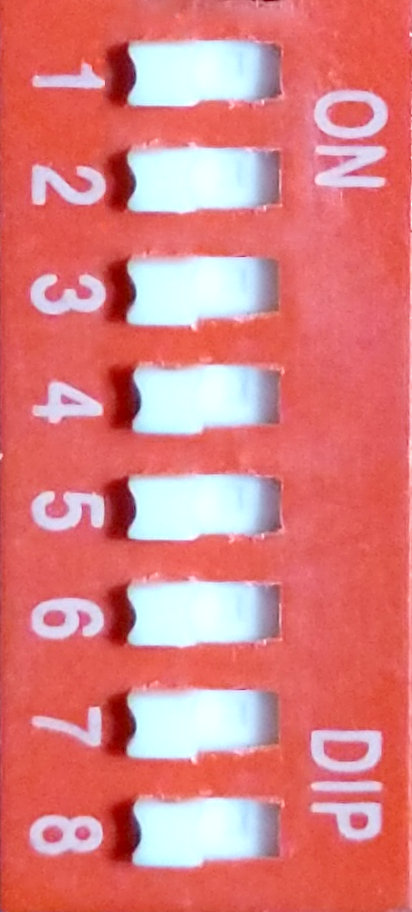
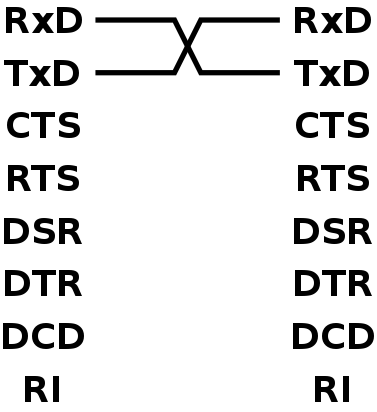
All dip off, jumpers as shown.
Null modem cabling is required to connect two DCE (computers) to each other. In it's simplest configuration only TxD and RxD are swapped.
5 wire null modem

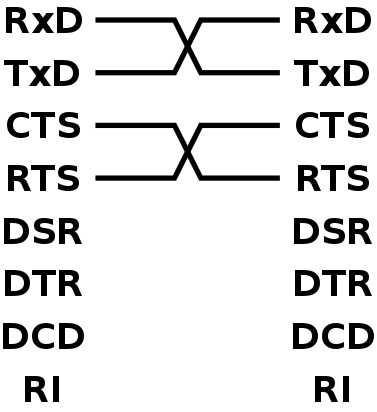
All dip off, jumpers as shown.
Null modem with hardware flow control.
Full Null Modem

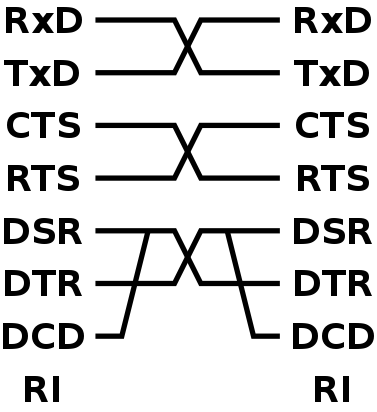
All dip off, jumpers as shown.
Null modem with full handshake (hardware flow control and modem lines).
3 wire Null Modem with CTS/RTS shorts

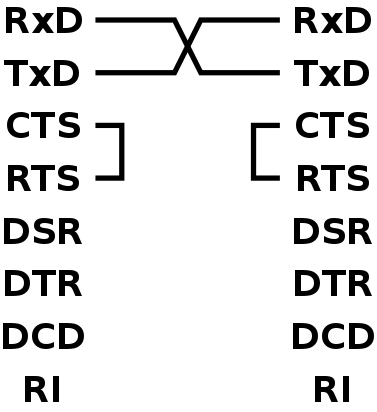
All dip off, jumpers as shown.
Useful to connect two DTE when one expects hardware flow control and the other one does not support it.
3 wire Null Modem with full handshake shorts

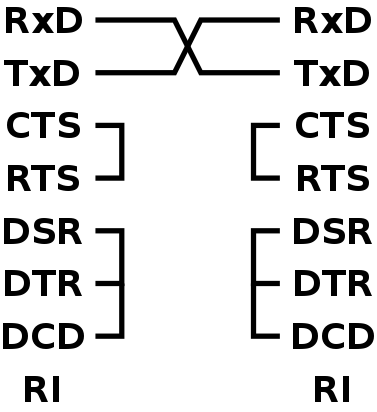
All dip off, jumpers as shown.
Useful to connect two DTE when one expects a DCE type device and the other one can't fully emulate a DCE.
5 wire null modem with shorts

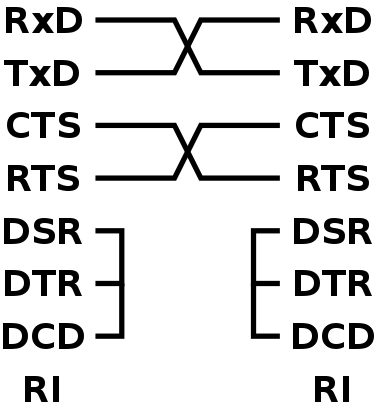
All dip off, jumpers as shown.
Similar to the previous one with the addition of hardware flow control.
3 wire loopback

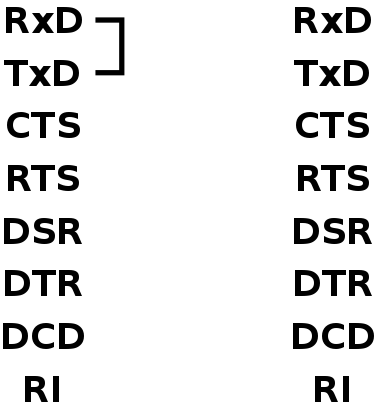
All dip off, jumpers as shown.
Simplest loopback cable.
5 wire loopback

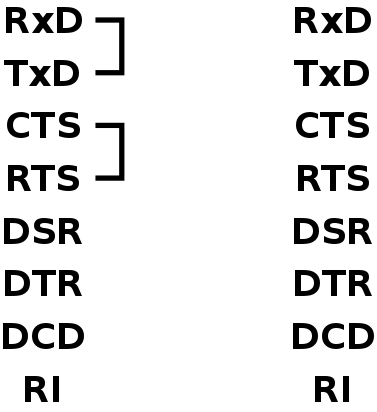
All dip off, jumpers as shown.
Loopback cable with support for hardware flow control.
Full loopback

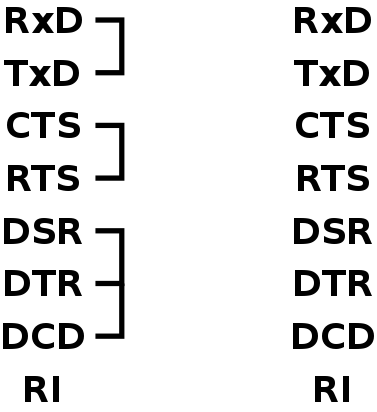
All dip off, jumpers as shown.
Loopback cable with full modem emulation.
Diagnostic loopback

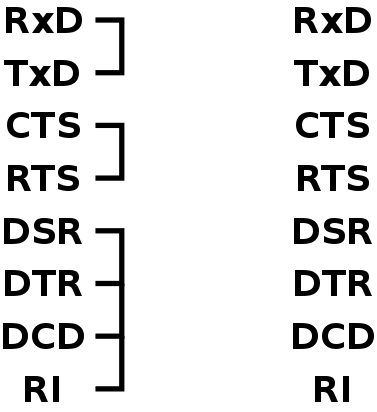
All dip off, jumpers as shown.
Loopback cable to use with diagnostic software.
glossary
DTE: Data Terminal Equipment (usually the computer)
DCE: Data Communication Equipment (traditionally a modem)
